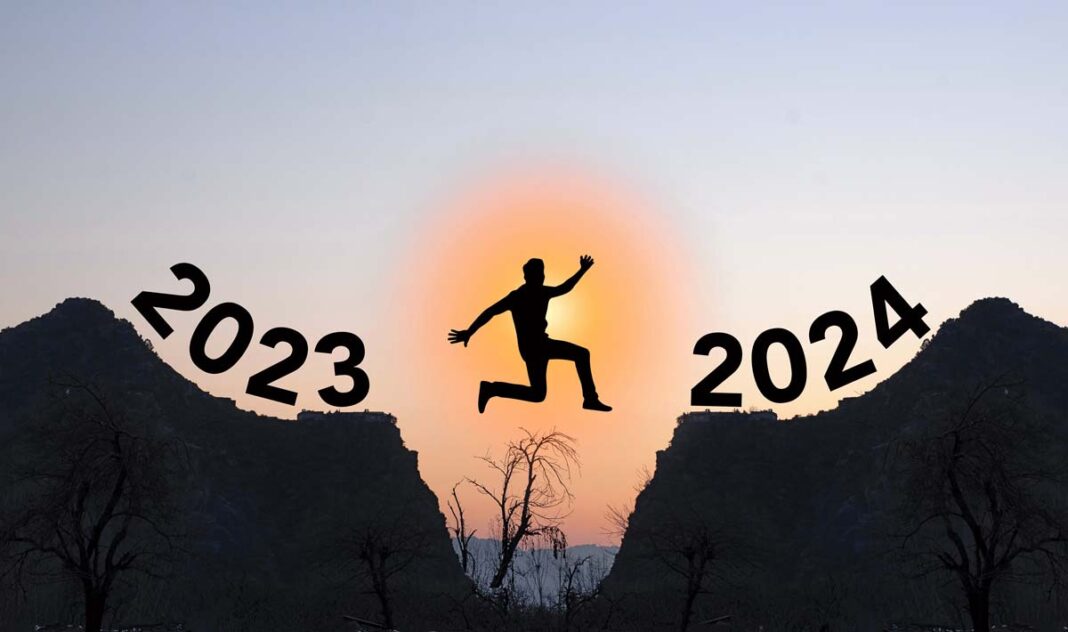Like most people, my year traditionally begins with a proclamation.
“This year is going to be different.”
“I am going to be different.”
“I’m going to do things differently and I’m going to think differently.”
I don’t call these statements ‘New Year’s resolutions’; In my experience New Year’s resolutions typically involve announcement of unrealistic expectations resulting in inevitable failure.
As many crash-dieters will tell you, by 1 February you end up knee-high in salt and vinegar chips and beer having starved yourself into miserable submission over the preceding four weeks – not the best way to start a new year.
The concept of a New Year’s resolution also begs the question, “If I’m going to change what I do from 1 January, why didn’t I change sooner? Why did I wait until 1 January to make my ‘road to Damascus’ proclamation? …
… and why, oh why, did I proclaim it publicly to all and sundry?”
At least if you keep your New Year’s resolution to yourself, you only need to justify your inevitable failure to yourself.
By announcing your resolutions to other people you may as well have your business cards reprinted to read, Bob Brown, Loser and change your online profile space to say, click here to see a failure.
In the realm of New Year’s resolutions, there are the obvious fails everyone seems to be able to do well. My track record in this space is exemplary. Consider my 2024 scorecard to date:
- Do more exercise (failed 3 January 2024, entire day spent on couch)
- Drink less alcohol (failed 1 January 2024 and the succeeding 6 days)
- Eat healthier food (failed 6 January 2024, chocolate)
- Buy fewer takeaways (failed 5,7,9 January 2024: miscellaneous cravings)
- Work harder (fail: not attempted)
- Eliminate spending on stupid things (succeeded 8 January 2024: credit card declined)
Contrast and compare strategy number two: commit to do nothing differently from last year – it’s hard to fail with this strategy.
I admit, this may seem rather negative. Although ‘the power of positive thinking’ is usually the motivator – e.g. be positive … you will join the gym and go every day for the entire year – think about it … seriously there’s a fail looming!
Instead, I recommend ‘the power of no thinking’: don’t do anything rash (and definitely don’t commit to new regimes at 11:59pm on 31 December), then sit back and celebrate the failure you just averted. The adrenalin rush of a near-miss can be exhilarating.
In the same way experts recommend not going to the supermarket to shop on an empty stomach, I also recommend not making New Year’s resolutions on a generally ‘feel-good’ day like New Year’s Eve. Instead leave it for 24 hours and see how you feel about that gym workout at 3pm on New Year’s Day … see what I mean?
I believe the same rules apply to business strategies, or realignment programmes as I like to call them when I want to sound knowledgeable by using BS (Business Syntax). We shouldn’t be picking an arbitrary date at which we decide we are going to treat our customers better; We shouldn’t turn a new leaf on the first day of the financial year and start being responsible employers on 1 April – I mean that date is problematic from a credibility perspective at the best of times – surely we should have been aiming to treat customers well and be caring employers all along … shouldn’t we?
Nothing wrong with assessing our performance, deciding where we can improve and then implementing changes, but there should not be an allocated time of year at which we do it – it should be a constant, continuous process.
At risk of sounding too-Harvard, continuous improvement is an actual business theory, a process of making small incremental changes that add up to significant results based on deliberate observation of current processes. Kaizen, the continuous improvement method, originated in Japan.
The reason many of us however end up making big changes to the way we run our businesses after we come back from our Christmas holidays is that the holiday period is the only time we get to think about the process without being interrupted with day-to-day problems and challenges. Some of my best business improvement ideas have come to me whilst floating in the pool at Denarau with a Fiji Bitter in my hand.
In conclusion ladies and gentlemen, may I suggest to you all that if you want more business success and greater efficiency, take more holidays, turn off your phone more often, and make business improvement more continuous and less annual. That’s My Business Advice (MBA).
Related: Closed for the holidays
- Alan Neben is a Mount Maunganui local and experienced New Zealand publisher. His columns provide a light-hearted perspective on social changes effecting New Zealanders.




